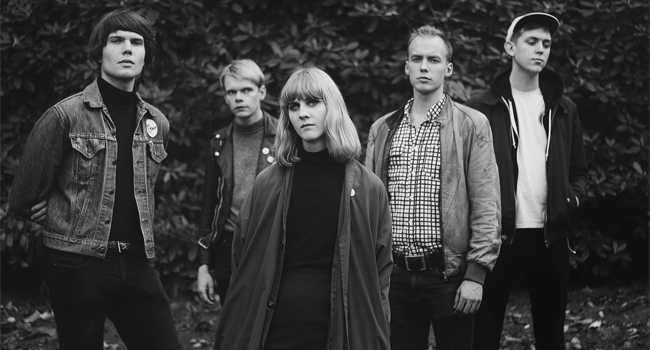 Apprenticeship is a forgotten part of the maturation process in a country that places liberal-arts-college-based, broad stroke education over all else. Obviously colleges have done worlds of good for most professions, but there’s an interesting corollary to draw between the lack of apprenticeship in education and in musical creativity.
Apprenticeship is a forgotten part of the maturation process in a country that places liberal-arts-college-based, broad stroke education over all else. Obviously colleges have done worlds of good for most professions, but there’s an interesting corollary to draw between the lack of apprenticeship in education and in musical creativity.
K Ishibashi, better known by his stage name Kishi Bashi, straddles this line between apprenticeship and success earning studiousness. While Ishibashi has tread the somewhat typical band-to-band path, (he is a founding member of the New York synth-pop group Jupiter One), he’s also tread a path that contains more than one reference to “schooling,” with quite a few people to shuttled him along the way, including one who could qualify as a “mentor” on his 2012 debut album, 151a.
151a is a gorgeous bit of pop that is bookish with its melodies and layering. Handclaps hop over off-tune violin creaks on the standout “It All Began With a Burst,” and both are rapidly dispatched by pitter-pattering synth and a delicious rolling baseline. Were it not so obviously pleasure driven, 151a might earn the decidedly intelligentsia driven moniker art-pop. Although reducing the record, and most of Ishibashi’s oeuvre as a whole, would do a disservice to the breadth of experience he has encountered on his journey around pop’s edges.
“I studied a good deal of classical composition when I was in school, which I think is very instrumental in creating the layers and orchestral textures that are found on the album,” Ishibashi says in an interview conducted via email.
One word that sparks the most interest in that sentence is “layers” – the breakneck “Chester’s Burst Over The Hamptons” is built off of frenetic violin before bursting into operatically uptempo burst of vocal harmony nearly drowning out the original elements. In the same vein, songs don’t stay in the same place for very long, as classical compositions are paired with Ishibashi’s shorter pop-centric work.
“I wanted to have a very pop-driven album because that’s what I’m about now, but because I chose violin as the main instrument, I naturally tapped into all my strengths, which include my composition training.”
The pop tendencies Ishibashi evinces on 151a are baroque, but recognizable; a smattering of Vampire Weekend percussiveness here, a dollop of Sufjan Stevens heavy synth-folk there. Ishibashi cites both as influences on the record, Stevens especially, but notes that contemporary classical music plays into the equation as well. He’s modest about his contributions to the point of reduction .
“I don’t really consider myself cutting edge though because I’m still writing simple pop songs,” Ishibashi says.
In addition to traditionally classical upbringing Ishibashi received through school, he also cut his teeth with a bevy of artists that he picked up ticks from. His specialty in violin gave him the opportunity to tour with acts ranging from Regina Spektor to Of Montreal.
He speaks highly of Spektor, saying “She is a fierce and inspiring solo artist and I really admired her for her ability to connect with her audience on a very personal level night after night.”
Of Montreal’s Kevin Barnes can be viewed as a mentor, since he shepherded Ishibashi through stints as Of Montreal’s violin player, and Ishibashi is quick to point out that Barnes “really pushed me to explore wilder and wilder textures as much as possible. I definitely matured as producer when working with Kevin.”
Whether this tutelage constitutes true mentorship is up for discussion. For one, 151a arguably bests any of Of Montreal’s recent output. Secondly, Ishibashi wants his act to feel like a distinctly individual affair. Speaking on the difference between Kishi Bashi and Jupiter One, Ishibashi lets a revealing tidbit go.
“I also felt that I could explore more into sounds because I didn’t have to worry about how we were going to pull them off live as a band,” Ishibashi says. “I think I definitely was able to take more risks and I could work far more rapidly when it wasn’t creating by committee.”
This idiosyncrasy could be interpreted as a leftover artistic thesis from his time under Barnes, who can express the same desires with Of Montreal.
More likely though, Kishi Bashi is merely meant as an expression of individual ID – a lush spilling out of ideas onto paper with nary a thought to the possible negative side effects therein.
Towards the end of the exchange, Ishibashi falls back on some of the textbook definitions of the mentor-mentee relationship. “I worked very closely with Kevin Barnes for a year and a half, and he really exposed me to the inner workings of his dense style of production,” Ishibashi says.”I got a very unique insight into the mind of a modern genius. It was very inspiring and in my album, I decided to take a dense multi-layered approach. I bet in some weird way, I wanted to win his approval (which I have).”
This somewhat surprising (even to him) thrust for approval is certainly apparent on 151a, as well as Ishibashi’s success in expanding upon Barnes pop formula.
However, 151a darts faithfully along Ishibashi’s own little idiosyncrasies (a line in the jubilant “Bright Whites” concerns finding out someone likes Big Red) enough to establish its own pop niche. Ishibashi likens it to “walking through candy filled woods,” which seems just about as twee and appropriate to fit.




